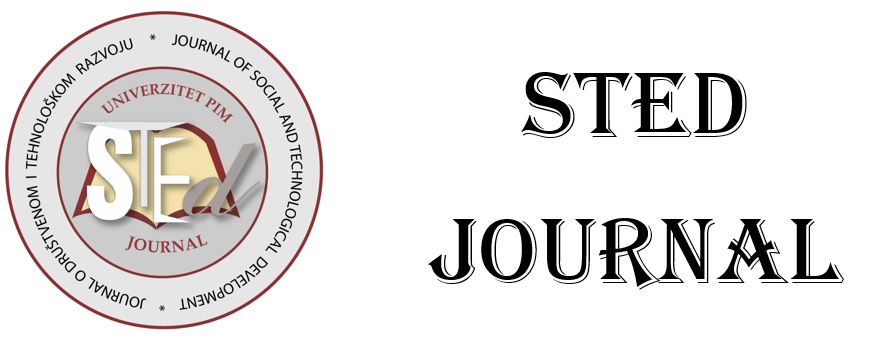
More articles from Volume 4, Issue 2, 2022
DENTAL IMPLANT MATERIAL (POLYETHERETHERKETONE, TITANIUM AND ITS ALLOYS, ZIRCONIA)
TESTING OF SMALL HOUSEHOLD BIOMASS BOILERS FROM THE ASPECT OF WASTE GAS EMISSIONS
OFFERING SERVICES BASED ON DATA WAREHOUSE AS A NEW TREND IN THE WORK OF PUBLIC ADMINISTRATION
GENDER DIFFERENCES OF SOCIOSEXUAL ORIENTATION IN THE CONTEXT OF PERSONALITY TRAITS
B&H CITIZENS’ PERCEPTION AND ATTITUDES ABOUT CORRUPTION IN THE WORKPLACE
Article views
B&H CITIZENS’ PERCEPTION AND ATTITUDES ABOUT CORRUPTION IN THE WORKPLACE
Faculty of Economics, University PIM , Banja Luka , Bosnia and Herzegovina
Republic Administration for Inspection Affairs , Banja Luka , Bosnia and Herzegovina
Received: 15.10.2022.
Accepted: 25.11.2022. >>
Published: 30.11.2022.
Volume 4, Issue 2 (2022)
pp. 42-48;
Abstract
Corruption is undoubtedly present everywhere in Bosnia and Herzegovina, in all pores of society and on an increasing scale. The fight against corruption is a great challenge for the most developed countries in the world. Therefore, it is not surprising that Bosnia and Herzegovina, burdened by political problems and poverty, finds it difficult to find effective mechanisms to combat this extremely negative phenomenon. The reasons for poor results in the prosecution of corrupt crimes range from the very nature of the phenomenon of corruption, which is shrouded in secrecy due to the interests of participants, which makes it difficult to disclose, to insufficiently good institutional and legal solutions. The aim of this paper is to determine the awareness of B&H citizens about corruption in the workplace and the way they relate to corruption in everyday life, but also to analyze the performance of state institutions in preventing and combating corruption. Based on the defined problem to be investigated and the set goals, the methodology used during the research was determined. The scientific-research character of this paper is based on the analysis of relevant scientific literature and modern sources using the methods of examination, methods of analysis, methods of comparison, methods of description and methods of deduction.
Keywords
References
Citation
Copyright
All papers are licensed under a Creative Commons Attribution 4.0 International License.
Article metrics
The statements, opinions and data contained in the journal are solely those of the individual authors and contributors and not of the publisher and the editor(s). We stay neutral with regard to jurisdictional claims in published maps and institutional affiliations.











